Hope it won't be like this for me. I hate my "typical firstborn traits", honestly. So boring! But that's very much about me :(
What Your Birth Order Can Say About Your Parenting Style
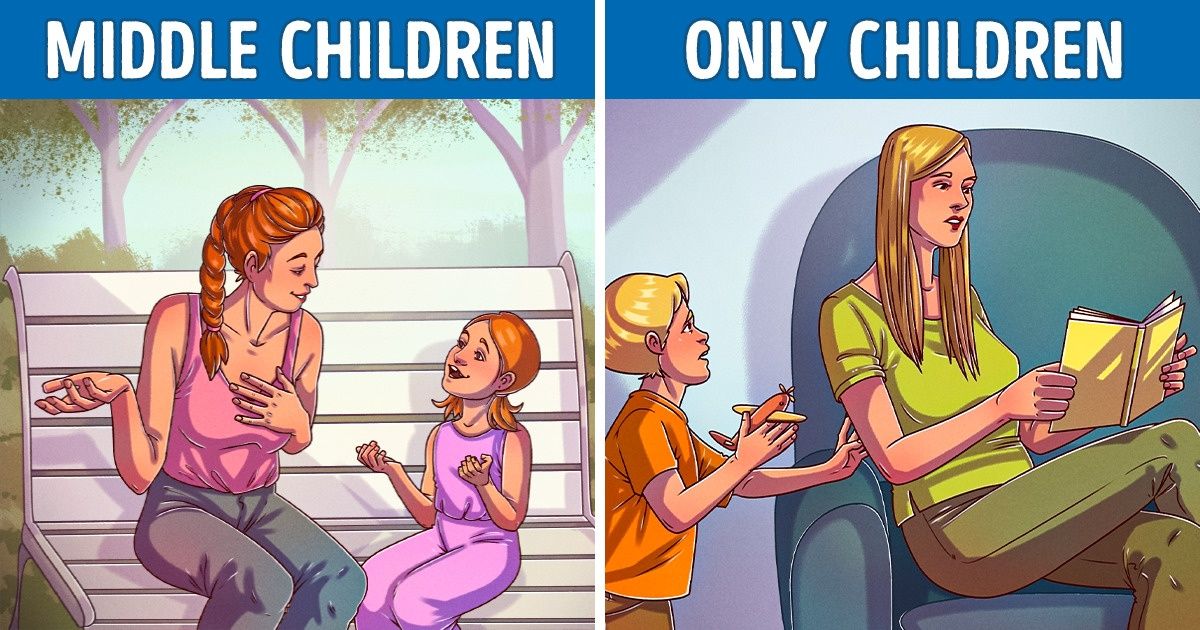
Turns out, your birth order can affect your personality more intensely than you originally thought. And not only can this impact your personality, but the way you bring up your own children as well. Kevin Leman, the author of The Birth Order Book: Why You Are the Way You Are, is sure that your place in line may predict who you’re destined to be as a parent.
We at Bright Side would like to tell you more about the link between your birth order and your parenting style.
1. The oldest children
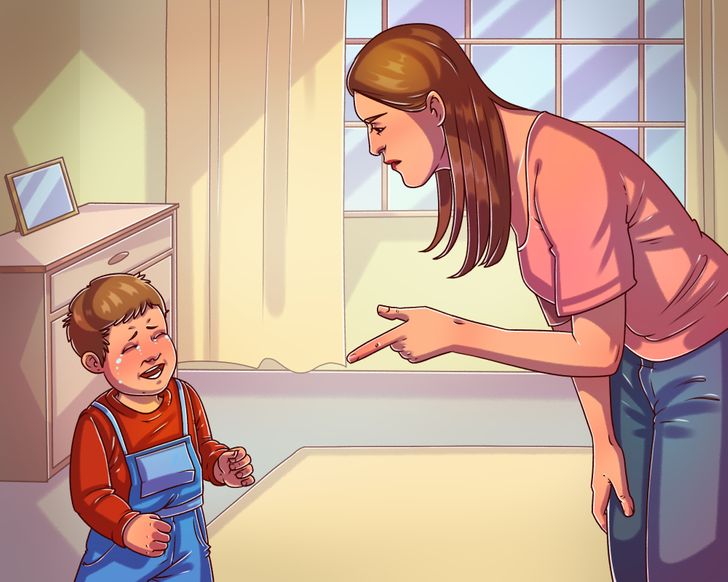
Personality traits:
- Firstborn children are usually leaders who tend to follow rules and achieve high goals. Thanks to these characteristics, they can become very successful in their career and personal life.
- They are most likely to become perfectionists, always striving to please others.
- They also have a high level of responsibility, since quite often, they’d have to behave like mini-adults and take charge of the house.
- They are self-confident and have a tendency to dominate any space they occupy.
- Because they’re afraid to make mistakes, the oldest kids are typically inflexible — they don’t like to change things and become hesitant when they need to step out of their comfort zone.
Oldest children as parents:
- If you’re a firstborn child, you’ll most likely have high expectations from your kids. Your type A personality and tendency to keep things in order will reflect in your parenting style.
- When you become a parent, you’ll probably recall your youngest siblings and their behavior. For example, if your younger sibling rarely felt heard, you might take it into consideration when raising your own child and ask their opinion more often. Or, if you usually felt irritated by your little brother or sister, you might have some struggles with being a parent and tolerating a baby in your own family.
- Sometimes you might also over-identify yourself with your child and become too demanding. However, if you have 2 or more children, you’ll feel more comfortable and relaxed.
2. Middle children
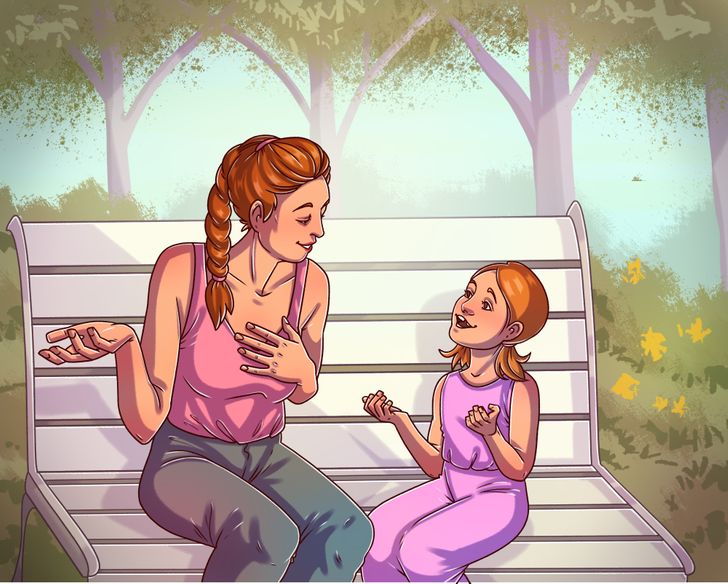
Personality traits:
- They usually play the role of peacemaker in the family because when a younger sibling arrives, they must learn how to negotiate and compromise in order to “fit in” with everyone.
- Thanks to their ability to negotiate better, middle children have larger social circles and thrive on friendships.
- They are very flexible and willing to go with the flow.
- Middle children can be people-pleasers because they always lack attention from their parents and this is their way of compensation. That’s why they tend to have stronger bonds with their friends than with family.
Middle children as parents:
- If you’re a middle child, you’ll probably compensate the lack of your parents’ attention with your own family.
- You won’t make any quick judgments concerning your children. Instead, you’ll be more likely to listen to them and see both sides of any argument.
- You’ll most probably make any decision based on what you think is best and fair for the whole family.
- Since you know what it feels like to be left out, you’ll try extra hard to make sure that all your children feel heard and included.
3. The youngest children
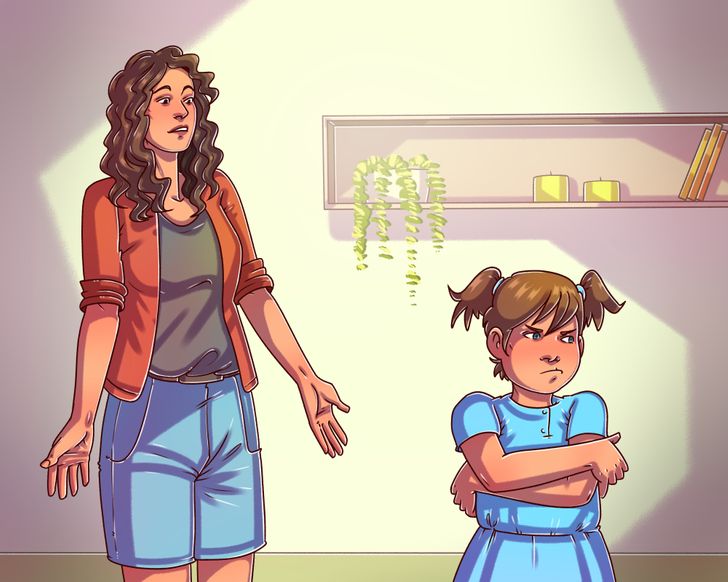
Personality traits:
- Babies of the family tend to have more freedom than their siblings, and as a result, they’re often more independent and confident.
- They are usually free-spirited, fun-loving, and outgoing.
- Youngsters are also adventurous and are more open to unconventional experiences and taking risks than their siblings.
- They’re natural charmers and they can often be the center of attention because of this.
- As the baby of the family, they have less responsibility and sometimes might behave in a carefree manner.
- Lastborns also learn to use their role as the baby to manipulate others.
Youngest children as parents:
- If you’re the youngest child in the family, you probably will encourage your own children to seek adventure as well.
- You’re most likely not tied to common theories and trust your own intuition when choosing what’s right for your own family.
- You’ll probably have some problems with establishing rules in your family because there weren’t any in your upbringing. But you should remember that rules are necessary to raise children. So it’s better to learn about structure and acquire some organizational skills.
- Sometimes, you might be too soft with your children, but don’t forget that this is not always the best approach.
4. Only children
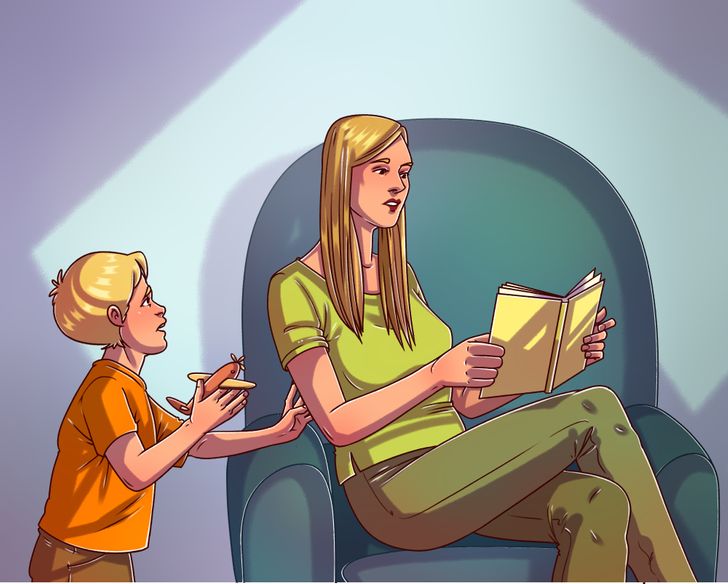
Personality traits:
- Only children tend to be similar to firstborns — they’re confident, successful, well-spoken, susceptible to perfectionism, and born leaders.
- However, they might become too egoistic and self-centered as they’ve never had to compete with another child for attention or share toys with them.
- They’re also very ambitious, enterprising, and energetic.
- Only children grow up surrounded by adults, and as a result, they’re often more verbal and mature.
- They’re used to being the center of attention.
Only children as parents:
- If you’re an only child, you’ll probably have some problems when creating your own family. As you’ve never been a “parent” for a younger sibling and haven’t learned how to share all the things you own, you might feel like a fish out of water.
- But if you choose a “youngest child” as your partner, you’ll most likely make a good couple — your knack for structure combined with their carefree spirit will make for a good balance.
- Don’t forget that you need your own alone time. When growing up, you were accustomed to having your personal time and space, so if your family members respect that now, you’ll thrive.
What’s your place in the family line — firstborn, middle child, or youngest? Or maybe you’re the only child in the family? Please tell us in the comments below!
Comments
As a first born, couldn't be more true
My sister is last born and she is 100% like the description
I don't always love having siblings but don't think I would want to be a single child
I might be a single child, but I'm the total opposite of the typical traits. I hate being the centre of attention, I am not self confident or a leader etc...However, I do need my alone time.
Related Reads
15 Photos That Show Sudden Moments Happen When You Least Expect Them

20+ People That Wanted to Hack Life and Actually Did It

I Refused to Pay for Our Valentine’s Dinner—Then I Learned the Heartbreaking Truth

14 Powerful Kindness Stories That Restored Hope in Tough Times

I Refuse to Support My SAHM Wife After Discovering Her Secret
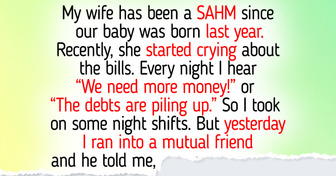
15 Moments That Prove Quiet Kindness Is What Keeps the World Together
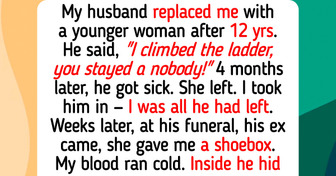
I Charged My MIL for Christmas Dinner, Even Though She’s Always Helped Us for Free

I Refused to Be the Office’s “Go-To” Holiday Backup Just Because I’m Single

15 Moments That Prove Kindness and Compassion Are the Only Currencies That Never Lose Their Value

13 Teachers Who Didn’t Just Teach a Subject, They Rescued a Soul
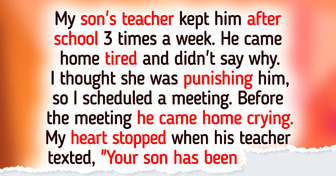
15 Moments That Teach Us to Stay Kind, Even When the World Gets Tough
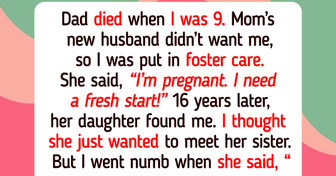
I Refuse to Help My Pregnant Sister, and I Don’t Feel Guilty
